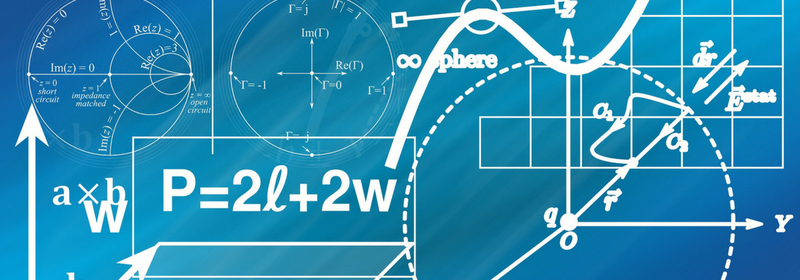
Mathematics and the Search for Exoplanets
Math sometimes gets a bad rap, but the “M” in STEM is vital, fascinating, and works with other fields to open up space for us to explore.
Article Header
« Return to Main PageMathematics and the Search for Exoplanets
Math sometimes gets a bad rap, but the “M” in STEM is vital, fascinating, and works with other fields to open up space for us to explore.
I love mathematics! Patterns, numbers, and formulas all combine to help us make sense out of
the myriad of observations we are able to make about the fascinating world of outer space.
Mankind has long been intrigued by looking upward at the stars and wondering. What’s out
there? Are there other life forms? Are they like us? What do they look like? Can they talk like us?
Do they reason like us? Could we communicate with them?

One of the many ways we look for life in space is to look for what are called exoplanets, planets
orbiting stars outside our solar system. After an exoplanet is discovered, we try and determine
if it orbits within the habitable zone, the distance from the host star where liquid water could
exist on a planet’s surface.
Personally, I think humans are intrigued by this concept because we love life. We enjoy life. We
are fascinated by life. This comes from being made in the image of the Creator of all Life! Of
course, it isn’t likely we will find life on other planets because God formed Earth to be inhabited
(Isaiah 45:18) and created the heavenly bodies for signs, seasons, days, and years, (Genesis
1:14) and to bring Him glory (Psalm 19:1).
Now back to math. How do we search for and learn about objects which are such a staggering
distance away that we can’t even see them without the aid of technology? Mathematics!
Here’s one way we discover exoplanets: transits. When an exoplanet passes (or transits) in
front of its host star, the light dims very slightly. Scientists can measure this dimming and make
reasonable assumptions about the mass or composition of the planet. This method only works
for exoplanets that are within our plane of view.
God has given us minds which can reason and one of the best ways to reason about outer space
is using mathematics. This summer, Ci 4.0, at Camp Infinity, one of our guest speakers was Dr.
Gary Guthrie, professor of mathematics at Bob Jones University. He gave a very motivational
talk about how to succeed in math.
We enjoy introducing our campers to college students and professors who help inspire them to go on and pursue degrees in various fields of STEM. We believe it also helps reduce the cost of higher education as these students tend to have a much clearer idea of what they want to focus on in college, thus saving tens of thousands of dollars in college tuition (you can read more about this in an earlier blog).
Math sometimes gets a bad rap, but the “M” in STEM is vital, fascinating, and works with other
fields to open up space for us to explore. And who knows what we will find as we keep
exploring?








